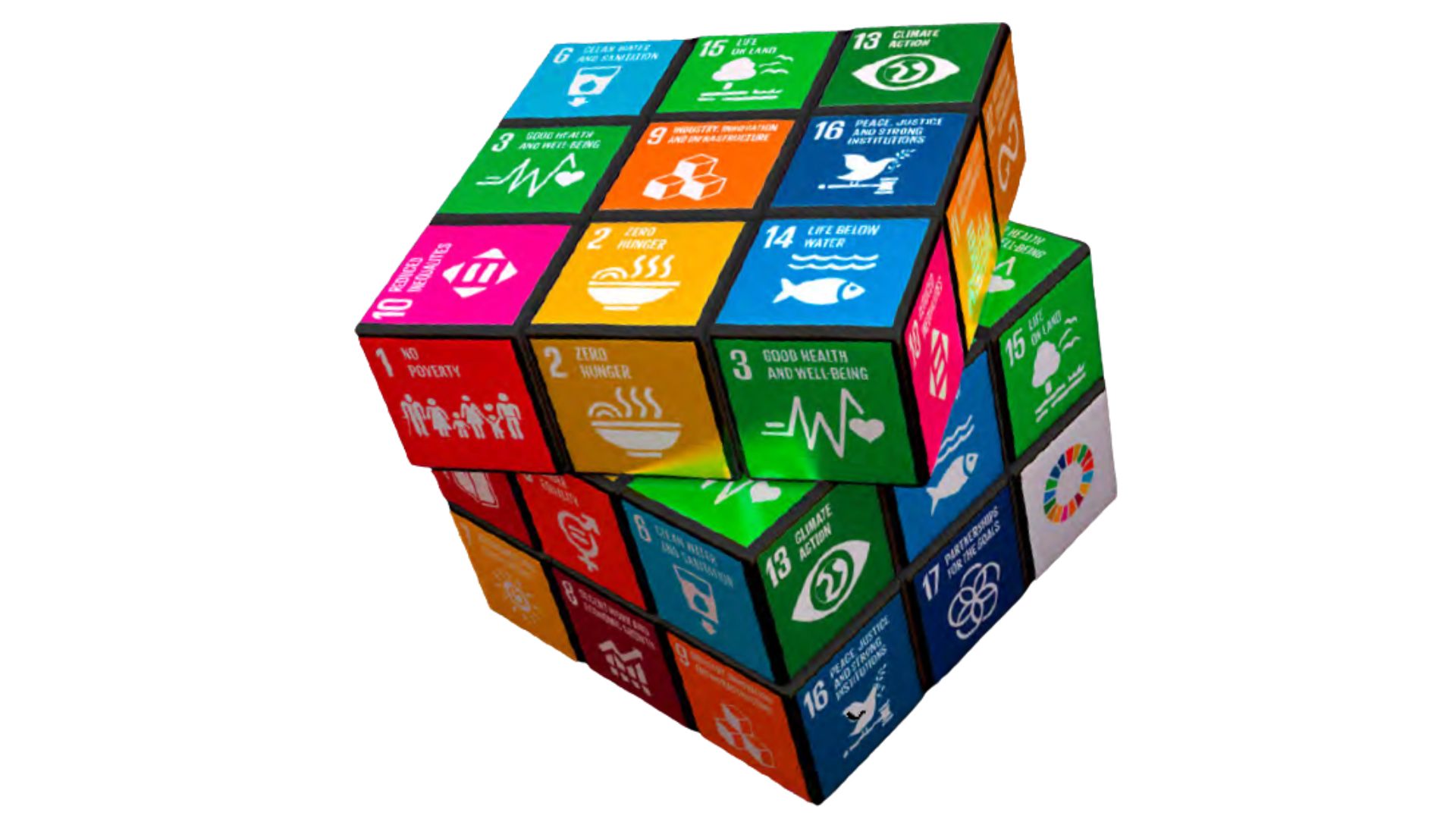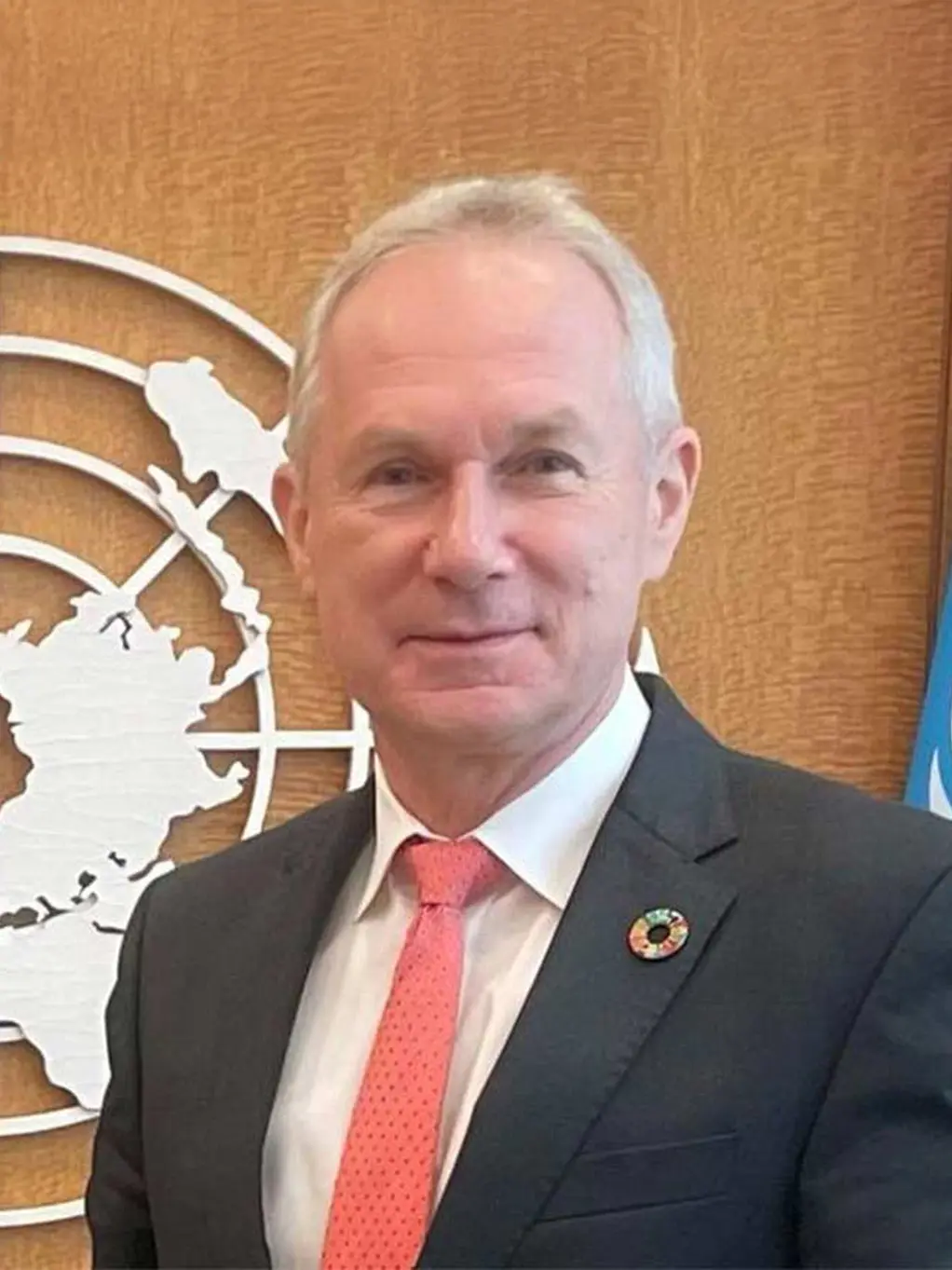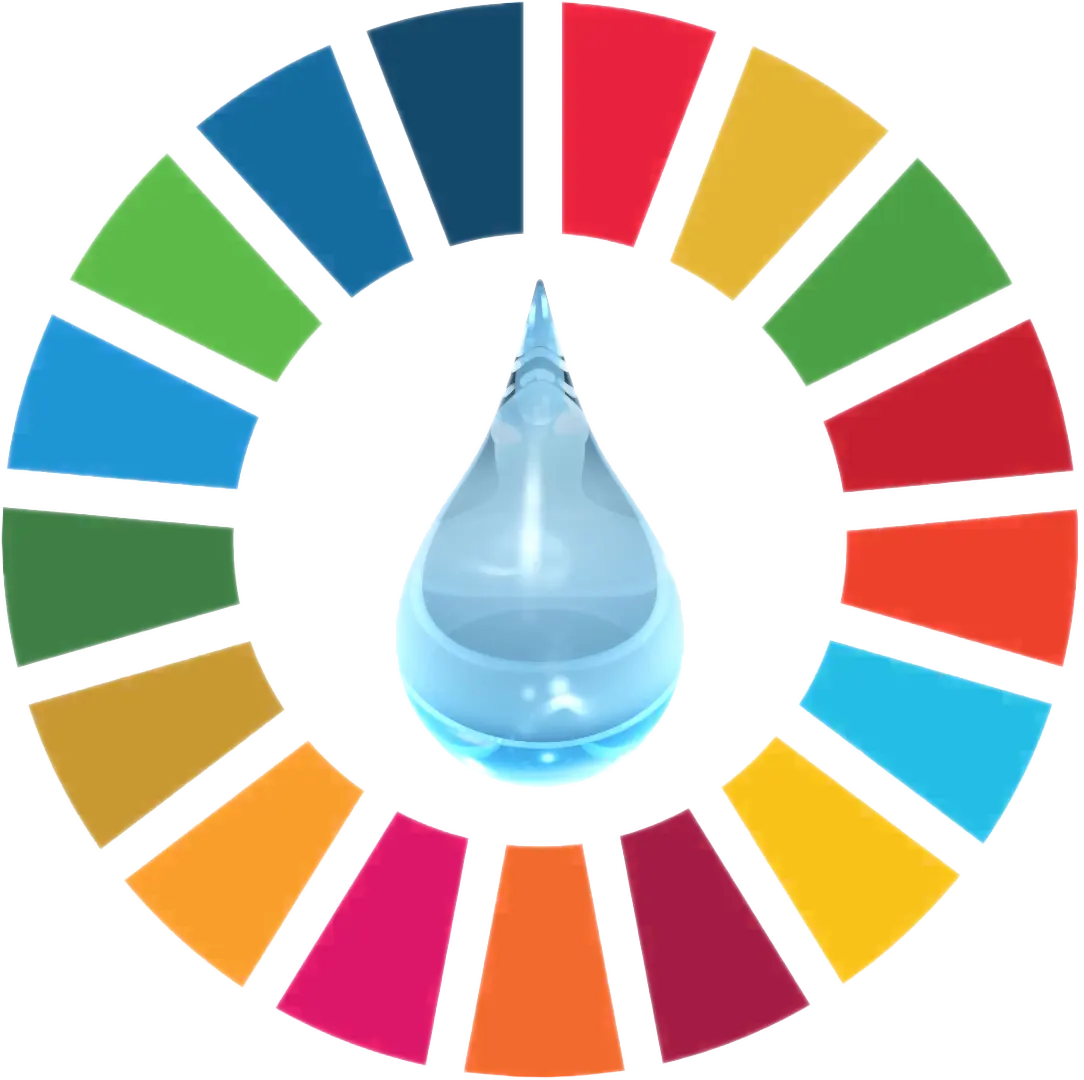Climate change and sustainability challenges do not stop at borders; we need dedication and cooperation at all levels.
In 2015, all the UN member states adopted 17 Sustainable Development Goals, which strongly emphasise the need to protect natural values and resources. Our colleagues at the Foundation pursue these shared goals in high-level national, regional and global institutions. Through our work, expertise and experience, we support both foreign and international decision-making processes in integrating sustainability into their overall agenda. We firmly believe that, together, we can achieve significant changes at the global level. Sustainability is our shared responsibility.
Implementation of the sustainable development goals (SDGs)
CSABA KŐRÖSI – The Strategic Director of the Foundation
CSABA KŐRÖSI was co-chair leading the negotiations on the SDGs at the request of the President of the UN General Assembly at the time. He has dedicated his work to ensuring that the vision of the global agreement is implemented for the benefit of both the world and Hungary. After coordinating the UN Open Working Group on SDGs, he worked with János Áder, President of Hungary at the time, and assumed important responsibilities in water diplomacy. In 2022, he became the 77th President of the UN General Assembly. Currently, he is advancing the implementation of the SDGs as the strategic director of the Blue Planet Climate Protection Foundation.
INTERNATIONAL MEMBERSHIPS
Japan International Cooperation Agency
As a distinguished fellow of JICA, he helps promote the efficient implementation of SDG initiatives in Japanese International aid and development programmes.
The Chinese International Research Centre of Big Data for Sustainable Development Goals (CBAS)
As a fellow of CBAS, he supports the organisation’s international network, which utilises research based on remote-sensing satellites and data-processing systems to advance the implementation of the SDGs globally.
Nizami Ganjavi International Centre (NGIC)
NGIC is an organisation supported by the Azeri government, which consists of heads of state, government, and ministers. Its primary purpose is to interpret major crises, conflicts and trends and discuss possible solutions.
Council of Presidents of The United Nations General Assembly (UNCPGA)
UNCPGA is a body discussing the significant challenges of the UN. Some of the main issues on the agenda are the reform of the global political and financial institutions and the UN itself.
Jury for the Elisabeth Haub Award
The Elisabeth Haub Award for Environmental Law and Diplomacy is the world’s most prestigious award in the field of environmental law. Our strategic director, CSABA KŐRÖSI, joined the jury in 2023. In 2015, he received the Elisabeth Haub Award jointly with Ambassador Macharia Kamau (Kenya) for directing the UN negotiations on the development of the SDGs.
Preparatory Committee of the 2024 Word Science Forum (WSF)
A body formed in cooperation with the World Science Council and the Hungarian Academy of Sciences to make the necessary professional preparations for the 2024 WSF discussions in Budapest.
COP29 International Advisory Committee (IAC)
The IAC’s task is to assist the Presidency Team, responsible for preparing and conducting the COP29 climate summit.
Roosevelt House Forum (RHF)
The Roosevelt House Forum is an initiative of City University of New York, which aims to promote science and scientific results to become the main contributors to advance the sustainability transition. Besides the permanent representatives of all UN member states this collaboration is open to universities, researchers, corporations, and NGOs. Our strategic director, CSABA KŐRÖSI, delivered the keynote speech as a dedicated member of the Advisory Board at the inaugural meeting of the RHF.
Measuring sustainability transition
GDP can only measure a nation’s economic output, providing a simplified approach to economic development. It does not consider the environmental and social effects and expenses of growth. Several initiatives worldwide are working to include sustainability in measuring economic development.
In Hungary, three research groups made significant progress in defining exact sustainability indicators. The Blue Planet Climate Protection Foundation and the Hungarian Academy of Sciences brought together these groups by initiating and coordinating a joint research project. The participants were the Hungarian National Bank with its sustainable GDP (sGDP) project, Makronóm Institute, which developed the Harmonic Development Index (H2DI), and Hétfa Research Institute with the Sustainability Performance Framework Index (SPFI). Thanks to their joint efforts, they developed a new, integrated methodology with multiple additional benefits:
- it is capable of longitudinally assessing the key dimensions of sustainable transitions and measuring progress in specific areas;
- it utilises a sophisticated methodological framework and a comprehensive system of indicators to provide helpful guidance for policymakers;
- It transforms heterogeneous data sources into systemised information that can be direct input for political and economic policy recommendations.
The timeliness of this initiative is demonstrated by the fact that the Pact for the Future, adopted by the UN General Assembly in the autumn of 2024, also set the goal of a system that adds a sustainability dimension to the measurement of GDP.
After one year of work, János Áder, the Head of the Foundation, presented the results at the 2024 Word Science Forum in Budapest. (For more information, you can access the research paper here.)
Water diplomacy
Seeing the results of the Budapest Water Summit, UN Secretary-General Ban-Ki Moon asked János Áder to be a member of the High-Level Panel for Water. At the end of its mandate, HLPW released an outcome document in 2018 called Making Every Drop Count, An Agenda for Water Action.
Later, as the President of Hungary and then as the head of the Foundation, János Áder joined the Water and Climate Leaders panel, invited by the Secretary-General of the World Meteorological Organisation and the head of UN-Water, the UN organisation responsible for water-related issues.
- The Water and Climate Leaders panel brings together current and former heads of state and government, ministers, leaders of the UN and other international organisations, and youth representatives. Invited by WMO Secretary-General Petteri Taalas and UN-Water Chair Gilbert Houngbo, the Water and Climate Leaders aim to set and pursue an Action Plan for Integrated Global Water and Climate Agenda in support of sustainable development Goal 6 related to water and sanitation services.
The UN General Assembly organised the UN Water Conference in New York in March 2023 to conduct a comprehensive review of the implementation of the UN Decade for Action on Water and Sanitation (2018-2028). János Áder participated in both the negotiations of the conference and the preparatory discussions held the previous autumn.
János Áder is also an Honorary Ambassador of the Hungarian Water Partnership. Through this role, he promotes the knowledge and experience accumulated by the Hungarian water industry and experts globally. He contributes to the recognition and marketing of Hungarian water-related sustainable, affordable solutions that were developed for global issues.
Promoting Sustainability in Education
KATALIN CZIPPÁN – Strategic and Educational Advisor of the Foundation
- In 2023, the UNESCO General Assembly appointed her a council member of the International Bureau of Education (IBE). Besides carrying out the general monitoring duties of the Bureau, she also strongly advocates for sustainability to become an integral part of all curriculums.
- She is on the Steering Committee of the Commission on Education and Communication of the International Union for Conservation of Nature (IUCN CEC). In this role, she ensures that national and international conservation organisations and policymakers recognise the key role of education and communication in achieving their goals and that education is crucial in implementing the Kunmin-Montreal Global Biodiversity Framework.
- She co-organised the Education Day at the Biodiversity Framework Pavilion of COP16. She collaborates with representatives of multiple organisations to make nature-based education the basis of the Global Plan of Action on Education for Biodiversity.




